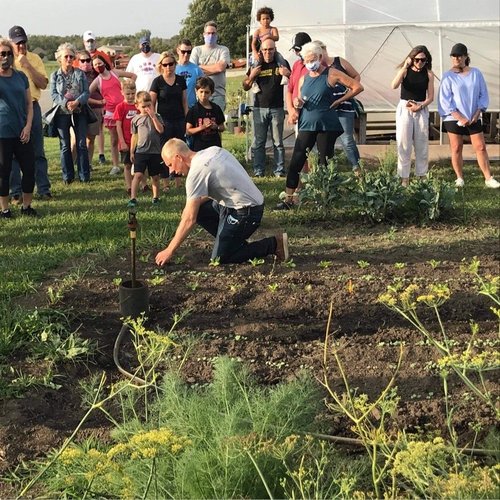Healing from the Ground Up: Forging A Unified Path Between Agriculture, Food Systems, and Healthcare
March 27-28, 2025 at Epiphany Farms in Bloomington, Illinois
Join us for this groundbreaking 1.5-day summit that bridges the gap between agriculture, food systems, and healthcare!
The current state:
Healthcare delivery, food systems, and agriculture operate largely in isolation today, limiting our ability to address chronic disease and create sustainable food systems. Human health depends directly on food quality, which is determined by agricultural practices and planetary health throughout the food system from production to disposal. Consumers seek comprehensive guidance that goes beyond basic dietary recommendations – they want to understand preventive nutrition while making choices that are economically viable and culturally appropriate.
We envision a future where:
- Consumers have access to foods that support both their health and values
- Our food system supports environmental sustainability while meeting community health needs
- Healthcare systems and their providers are active participants in connecting their communities to health-promoting food systems
- Incorporate food systems and enhanced nutrition education into medicine curricula and residency training
- Farmers are supported in producing nutrient-dense foods through regenerative practices
- Institutions have clear pathways to source and serve health-promoting foods
This summit represents a crucial step toward realizing this vision by bringing together the key stakeholders needed to create systemic change.
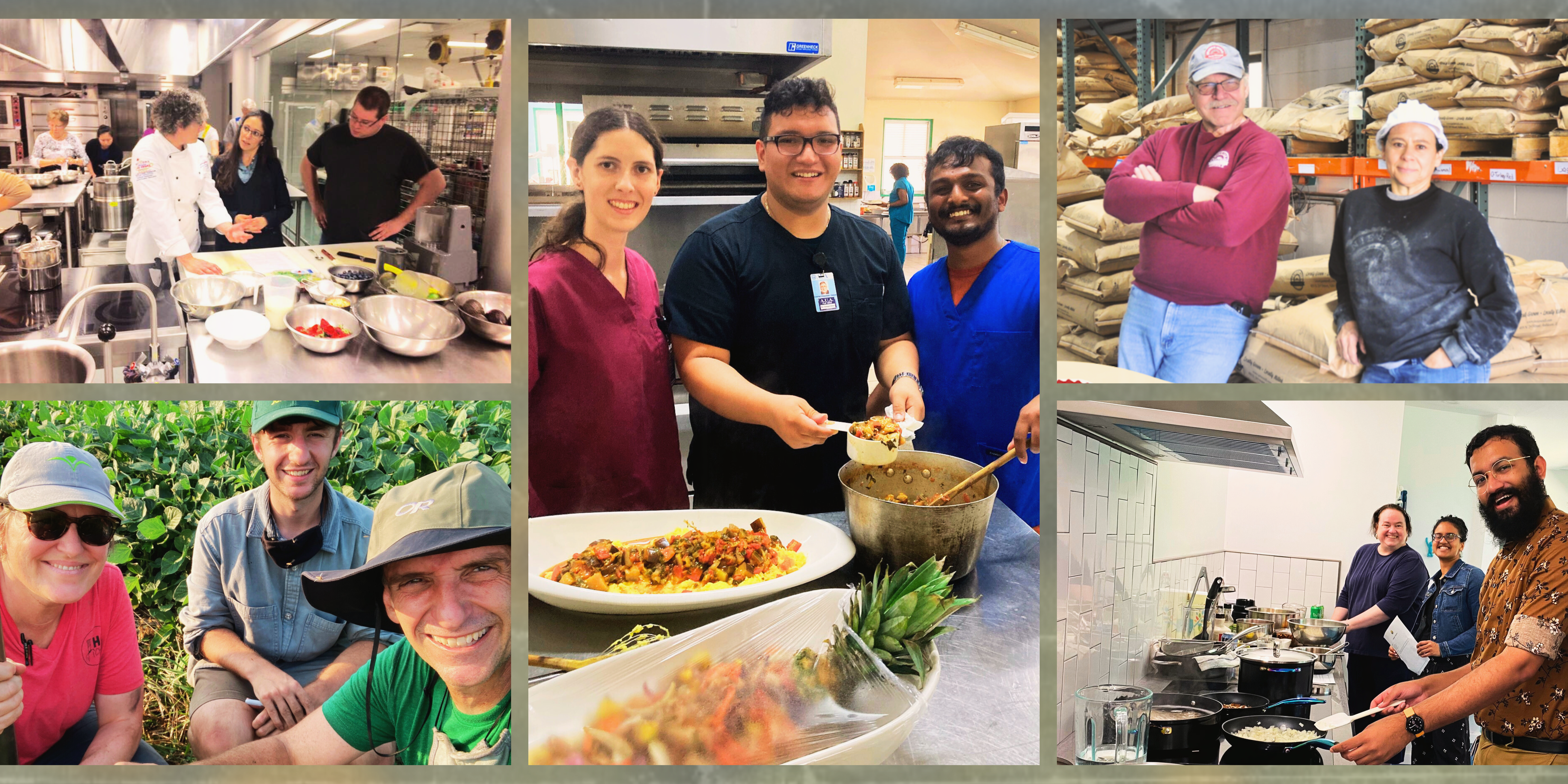
Basil’s Harvest works with key players across food, farm, and healthcare systems to develop systemic solutions. This compelling summit will tap into the experiences gained by our team while working across systems to lead collaborative projects, transdisciplinary outreach, and hands-on workshops.
What to Expect
The summit provides opportunities for engagement, learning, and development and will:
Bridge critical knowledge gaps:
- Enhance healthcare professionals’ knowledge about the food system and agriculture
- Build a shared understanding of how regenerative practices impact soil health and food quality
- Explore connections between soil health, nutrient density, and health outcomes
Drive systems-level change among professional stakeholders:
- Develop collaborative frameworks for agriculture, food systems, and healthcare
- Establish networks for continued learning and implementation
- Develop actionable strategies to implement in individual and collective work within communities
Why it matters
By integrating our approach into agriculture, food systems, and healthcare, we can cultivate more resilient communities, improve public health outcomes, and build a more sustainable future for all.
Don’t miss this unique opportunity to be part of a transformative dialogue that could reshape our approach to health and sustainability from the ground up.
Who Should Attend
- Healthcare providers
- Healthcare administrators
- Dietitians and nutritionists
- Community health
- Public health policymakers
- Researchers and educators in related fields
- Food service directors and institutional buyers
- Policymakers and community leaders
- Farmers and agricultural professionals
- Health Insurance companies
- Funders
DAY 1 AGENDA
MORNING
Welcome
Featured speakers: Erin Meyer RD, MS and Alan Shannon
Setting the Stage & Examining the Intersections:
Identify stakeholder perspectives and understanding how these sectors impact one another.
Soil is Health
Moderator: Anya Knecht, MS
Panelists: Raghela Scavuzzo, Dr. Carl Rosier, and Traci Barkley, MS
Food is Health
Moderator: Dr. Jasia Steinmetz, RD, CD
Panelists: Dr. Amy Christison, Janie Maxwell, RD, and Steve Ericson
Food Systems is Health
Maura Shea
LUNCH
Lunch from Epiphany Farms (included with registration)
Keynote: Ken Myszka, Chef & Farmer at Epiphany Farms
AFTERNOON
Panel Discussion:
“What If We Accomplished All the Things?”
Featuring speakers from the morning session
A Case for Change:
Individual reflection & group discussion
EVENING
Cocktails and dinner from Epiphany Farms (included with registration)
Dinner Keynote: Chef Bryan Flower
Featuring stories of Healing from the Ground Up:
Anya Knecht, MS – “Engineered to Survive: A Systems Approach to Life, Health, and Soil”; and Beth Marcoot – “From Heritage to Innovation: How Genomic Testing Revolutionized Marcoot’s A2 Dairy”
DAY 2 AGENDA
MORNING
Breakfast from Epiphany Farms (included with registration)
Strategic Action Planning: Immediate, Short-term, and Long-term
LUNCH
Boxed lunch from Epiphany Farms (included with registration)
Event concludes at 2PM
Registration
Registration is now closed.
The 2025 Summit will take place March 27-28, 2025 at the Epiphany Farms Restaurant located at 220 E Front St, Bloomington, IL 61701.
Included in your registration:
- Full-access from 8:30 a.m. to 5 p.m. on Day 1 and from 8:00 a.m. to 1 p.m. on Day 2
- Expert-led sessions bridging agriculture, food systems, and healthcare
- Interactive breakout discussions and strategic planning sessions
- Continuing Education Credits for physicians. The CME activity application for “Healing From the Ground Up: Forging a unified path between agriculture, food systems, and healthcare” is pending review and approval for CMEs
- Summit materials and activities
- Evening networking reception and dinner featuring a welcome reception with artisanal appetizers and cash bar, a multi-course dinner celebrating regional ingredients, and an intimate storytelling through dessert. Hear firsthand experiences from farmers, healthcare providers, and food system innovators
- Refreshment breaks
- Exclusive networking opportunities to connect with diverse stakeholders across farm, food, and healthcare sectors
- Access to thought leaders and innovative solutions
Facilitator

Courtney Long, PhD
Courtney Long, PhD, is the Director of the Agricultural and Marketing Resource Center, and Manager of the Food Systems program at Iowa State University Extension and Outreach. Courtney has worked in food systems since 2010. She seeks to understand the intersectionality of community, food systems, and resilience with projects and research ranging from scenario planning for preparedness for future disasters, resilient food systems assessments, and place-making through food system development. Much of her work connects to community and organizational assessment and facilitation to understand the underlying aspects of values and purpose in relation to resilience and food system intersections. Long’s research and programming cuts across areas of resilient food systems and impacts from COVID and natural disasters. Specific emphasis has included understanding place-based community capacity for responding to disasters; population support for local farm and food businesses; and Land Grant Universities’ roles in supporting efforts for resilient food systems.
Speakers

Erin Meyer, RD, MS
Erin Meyer, RD, MS is the founder and Executive Director of Basil’s Harvest, a nonprofit organized based in central Illinois that engages the power of regional regenerative food systems to promote human and planetary wellbeing. Our work connects farmers, institutions, health systems and businesses to build just and regenerative supply chains. We curate experiential learning programs, oversee collaborative research to expand understanding, and work hands-on with leaders to support them in creating and sustaining more resilient regional food systems.

Amy Christison, MD
Dr. Amy Christison is the Eliza J and Pedro A de Alarcon Associate Professor in Pediatrics at University of Illinois College of Medicine at Peoria. She is the medical director of Healthy Kids U at the Children’s Hospital of Illinois, a pediatric obesity care program, and the healthcare systems curricular lead for the U of I College of Medicine. Her clinical and research interests focus on childhood obesity prevention and treatment which includes how food systems, communities, and healthcare systems can promote nutrition security for children and their families. As a co-chair of the Illinois Chapter of the American Academy of Pediatric Nutrition Security task force and a member of the Healthy Eating Active Living Food Systems Partners serving the Central Illinois Region, she has partnered with others to promote nutrition literacy and security.
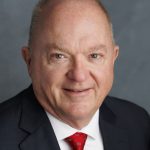
Steve Ericson
Steve has served as Executive Director of Feeding Illinois since August 2018. Prior, he spent 24 years with the Northern Illinois Food Bank (NIFB), holding numerous leadership positions within that organization. Over his 30-plus years total in the food banking industry he has managed the entire spectrum of the supply chain and operations – from procurement to distribution and facilities to transportation. In his current role, Steve represents the combined interests and coordinates joint efforts and cohorts of the eight Feeding Illinois member food banks serving all 102 counties in Illinois. Working in conjunction with Feeding America and often aligning with other Partner State Associations and state agencies, his and Feeding Illinois’ food banks collective priority is to advocate for, provide, and increase equitable access to fresh, local, culturally appropriate foods and food assistance programs to meet the pertinent and nutritional needs of the food banks’ community agencies and Illinois neighbors. Previously, Steve holds a Bachelor of Science degree from the University of Illinois at Champaign-Urbana; and a MS in International Agricultural Economics along with an MBA from the University of Missouri-Columbia. He has since also obtained a Certificate in Nonprofit Management from the University of Illinois-Chicago. Steve and his wife Susan live in Campton Hills, IL.
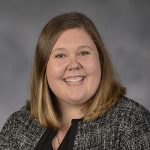
Raghela Scavuzzo
Raghela Scavuzzo started with Illinois Farm Bureau as the Local Foods Program Manager in the Governmental Affairs and Commodities Division in 2017. She became the Associate Director of Food Systems Development for the organization in 2019 and the Executive Director of the Illinois Specialty Growers Association in 2018. In these roles, Raghela is responsible for developing and coordinating farmers and food market channels for food initiatives and food safety. This includes advocacy, policy development infrastructure development, providing technical assistance, and developing partnerships at the local, state, and national level. Prior to working with Illinois Farm Bureau, Raghela helped develop and coordinate a local food hub and food access program in Birmingham, Alabama. Raghela holds a bachelor’s degree in biochemistry and a bachelor’s degree in classical studies with a focus in Latin from Westminster College. She and a master’s degree in public health from Tulane University with a focus in nutrition.
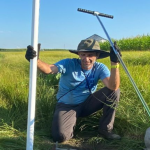
Carl Rosier
Dr. Carl Rosier (co-PI) is a professional soil scientist focusing on soil microbial ecology and biochemistry. Dr. Rosier is founder of Agroecology Solutions, co-founder of Barking Dog Farms, and consulting scientist for both Basil’s Harvest and Bionutrient Institute. His research specializes in understanding the complex relationships between the soil microbiome, nutrient cycling, carbon storage, and soil structure. Specifically, Dr. Rosier’s research connects farm management strategies (i.e., conventional -organic certification) and environmental conditions influence on the soil microbiome driving critical soil ecosystem services. This work integrates advanced soil microbiology methods (i.e., next generation sequencing) in combination with standard soil measurements and long-term environmental monitoring.
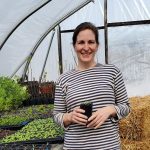
Traci Barkley, MS
Traci comes from a long line of Midwestern family farmers, and has been involved in community-level health-related work all her life. Traci joined the staff of Sola Gratia Farm in March of 2014 after nearly 20 years working to protect, conserve and manage water resources as an aquatic ecologist and policy specialist for a statewide clean water advocacy organization as well as the state’s environmental regulatory agency. Barkley is beginning her 12th year as Director of Sola Gratia Farm and is responsible for directing all activities at Sola Gratia with primary focus on program development and implementation; community partnerships; and fundraising. Traci has a passion for feeding, empowering and enriching our communities’ nourishment and health as evidenced by participation and leadership in several partnerships, committees and projects addressing food production, distribution and engagement with particular focus on low-income and limited access residents.
Traci is an active member of Illinois Stewardship Alliance, helped launch the Illinois Local Food Farmers Caucus and currently serves on the Healthy Champaign Counties Committee and the Advisory Board of the UIUC Student Sustainable Farm. Traci earned a B.S in Ethology, Ecology and Evolution and a M.S. in Natural Resources and Environmental Sciences from the University of Illinois.

Janie Maxwell
Janie [she/her/hers] is the Executive Director for the Illinois Farmers Market Association. She is passionate about expanding local foods and farmers markets. As a Registered Dietitian, she believes strongly in the health value of local food and advocates for local food by building systems that highlight the economic value of markets to communities and farmers.
Janie has a diverse professional background with experience in nonprofit management, managing nonprofit initiatives, and grant programs, including her work with Making Kane County Fit for Kids, a Robert Wood Johnson Foundation, Healthy Kids Healthy Communities Grant. Fit for Kids became a nationally recognized leader in creating a culture of health, in part by improving access to healthy food. Recent work includes research with Northern Illinois University nutrition students on “Millennial Participation at Farmers Markets” and leading collaborative efforts with local farmers markets to enhance marketing and education initiatives.

Chef Bryan Flower
Born in England & raised in South Africa, Chef Bryan started working in the hospitality industry in the mid-nineties. Over the past 30 years, his talents have taken him from South Africa to Europe, the Middle East, and finally to the United States. Chef Bryan has worked at several renowned resorts, clubs, restaurants and hotels, before moving into education. Chef Bryan loves to share his passion and knowledge of all things pertaining to the food service industry and has taught culinary and hospitality in higher education for over 18 years. His desire to work with quality ingredients led him and his wife to buy the property now called “The Red Home Farm”, where they raise grass fed beef and operate a food trailer. He is now the Assistant Director of Food Systems Innovation at Northern Illinois University and is responsible for developing and overseeing numerous innovative food systems programs including the edible campus, the sustainable food systems innovation challenge, and the innovation conversation to name a few.

Maura Shea
Maura Shea is an Associate Professor of Practice at the Institute of Design (ID) focused on evolving community-led development methods and approaches. She is also the Co-Director of the ID Food Systems Action Lab where she researches how systemic design can support shifting local and regional food systems toward improved social and ecological resilience. Working as an innovation leader in national nonprofit networks, Maura is interested in how design can help actors within systems to better understand their roles and the ways they can influence the systems they work within toward greater social and ecological resilience.
She holds a bachelor’s degree in comparative literature and philosophy from Macalester College and a Master of Design (MDes), with a concentration in visual tools for design research, from ID.
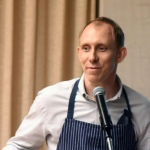
Chef Ken Myszka
Chef Ken Myszka, of Downs, IL, first discovered his interest in hospitality through hosting family gatherings and parties for close friends. He was instantly captivated by the ability to make people feel good and the joy of taking care of others. Curious about the business side of the food industry, Ken enrolled at the University of Nevada in Las Vegas for a Bachelor’s Degree in Hospitality Management. Las Vegas provided the perfect opportunity for Ken to blend his interest in immaculate cuisine with the world of hospitality. While in Las Vegas, he worked in the elite kitchens of renowned hotels, Restaurant Guy Savoy and Bradley Ogden at Cesar’s Palace, and Bouchon at the Venetian. In addition, Ken has worked throughout restaurants in the U.S., including Solo (New York), Company American Bistro (Las Vegas), and the Broadmoor Resort (Colorado Springs). However, despite an early career in some of the country’s finest restaurants, Ken never lost site of his roots in Central Illinois.
Armed with impressive culinary experience and a vision for a sustainable farm/restaurant, Myszka returned to Bloomington, Illinois in January 2009, where he began establishing the foundation for Epiphany Farms Enterprise (EFE). The mission is to create a diversified, pasture based, food system, one that blends beyond organic farming with impeccable food. In 2014, EFE announced completion of its ‘Epiphanization’ and ready to embark on the next stage of its journey, Epiphany Farms Restaurant.
Working with the land completely changed Ken’s perspective on food. He began to see cuisine on a more connected and sustainable level. Ken sees EFE as a beacon for sustainability, a catalyst for social change. Ken is committed to supporting, growing, and showcasing a thriving local food culture, in an effort to re-envision the current culinary landscape.

Alan Shannon
In his role as Public Affairs Director, Alan uses his more than 3.5 decades of FNS experience to direct communications and lead partner relations in the Midwest for 16 federal nutrition assistance programs. He works with Congressional members and staffs, as well as local, state, and tribal agency staff and elected leaders, in addition to leaders within not-for-profits and businesses. Alan founded and helps facilitate three USDA FNS networks: (1) the Midwest Anti-Hunger Network; (2) the Midwest Healthcare Network; and (3) the Midwest School Meal Champions. He has extensive involvement with FNS federal nutrition assistance programs and nutrition education programs, including policy, program improvement, as well as event and conference planning. Alan also serves on the USDA’s first-ever Food and Nutrition Security Team, and has written for a variety of publications, including articles featured in the Chicago Sun-Times, as well as several other Chicago-area, national, and international outlets. Alan is a communication graduate of Loyola University Chicago.
Storytellers
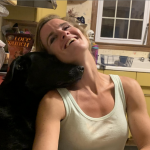
Anya Knecht, MS
Anya Knecht is the founder of Knecht Research Consulting and Design where her work spans agriculture, gut microbiome, and regenerative practices, integrating health and nutrition. She also founded Knecht Research Consulting and Design, focusing on human factors engineering and interdisciplinary research, emphasizing community engagement, system design, and education. Raised in the Midwest, Anya’s work is influenced by her experience on her 10-acre farm (Anya Farm), exploring the relationship between soil, food, farm, and health, aiming to create biodiverse systems responsive to climate challenges. At the Beckman Institute, she was instrumental in executing large-scale interdisciplinary studies on the effects of exercise, nutrition, and aging. The “Knecht Theory” she developed guides decision-making in health and agriculture, promoting adaptability, biodiversity, and sustainability through informed choices that address climate change, health, and the interdependence of soil and human health.
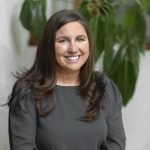
Beth Marcoot Young
Beth Marcoot Young is one of the owners of Marcoot Jersey Farm located in Greenville, Illinois. Beth and her sister Amy came back to their dairy farm to start a value-added venture Marcoot Jersey Creamery, LLC in 2010. Marcoot Jersey Creamery produces and manufactures cheese in the on-farm manufacturing facility. Throughout the years Beth has helped with the addition of new products and brands within her company. Beth lives on the farm with her husband and three boys
Sponsors
This summit represents a crucial step toward realizing this vision by bringing together the key stakeholders needed to create systemic change. Join us in this transformative initiative by
becoming a summit sponsor.
PARTNER
Midwest Dairy® represents 4,000 dairy farm families who are committed to providing nutritious, wholesome milk and dairy products. They share a great responsibility as stewards of land, resources and, of course, their cows. Midwest Dairy® works on behalf of our dairy farm families to share their sustainability stories , educate about the goodness of dairy and inspire confidence in the products and farming practices.
NCR-SARE offers competitive grants and educational opportunities for producers, scientists, educators, institutions, organizations and others exploring sustainable agriculture in America’s Midwest.
ADVOCATE
- COMPEER FINANCIAL
- JANIE’S MILL
- ILLINOIS STEWARDSHIP ALLIANCE
Accommodations
There will be a hotel block of reservations available for attendees at the DoubleTree by Hilton Hotel Bloomington. Click here to access the hotel block.
About Epiphany Farms Restaurant Group
Led by visionary Chef & Farmer Ken Myszka, Epiphany Farms represents a living example of connecting agriculture, food systems, and health in Central Illinois. Epiphany Farms is a fully working farm, focusing on regenerative farming techniques, and building a healthy food system by supplying their four restaurants (within a 10-mile radius of the farm) and their community. Their 75-acre farm and network of local producers will provide ingredients for our meals during the event.
2025 Summit Frequently Asked Questions
For more information or for questions not addressed here please contact Erin Meyer at e.meyer@basilsharvest.org.
Is there a cancellation policy?
50% Cancellation policy through March 13, 2025. Reach out to Erin Meyer (e.meyer@basilsharvest.org) with questions or concerns.
Are there recommended hotels nearby?
What should I bring to the summit?
Business cards, note-taking materials, and comfortable business casual attire. All other workshop materials will be provided.
Will there be continuing education credits? If so, how do I claim my credits?
The CME activity application for “Healing From the Ground Up: Forging a unified path between agriculture, food systems, and healthcare” is pending review. Documentation and instructions for claiming credits will be provided
Can you accommodate dietary restrictions?
Food will be served in the form of box lunches and buffet-style meals, and will include gluten free and vegetarian options. If you have other dietary needs, please let us know and we will try to accommodate.
Is the venue accessible?
The Summit will be held in Epiphany Farms Restaurant Ballroom. It is accessible by stairs.
What is the dress code?
Business casual attire is recommended for all workshop sessions and meals.
Will the presentations be available after the summit?
Yes, participants will receive access to approved presentation materials following the event.
Is there a virtual attendance option?
This workshop is designed for in-person interaction and networking. No virtual option is available.



